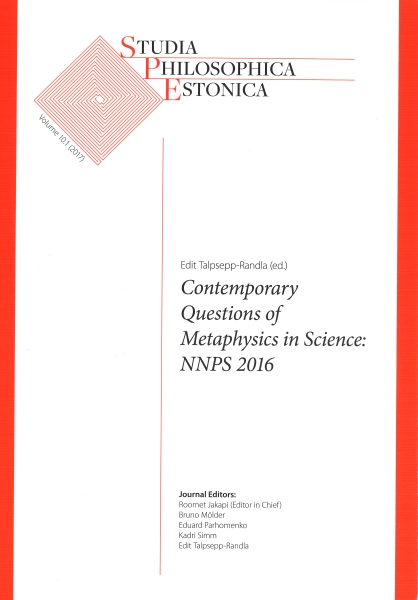The Dilemma Imposed on the Realist by Putnam's and Kripkensteinian Argument
Keywords:
Putnam's argument, Kripkensteinian argument, meaning minimalism, global expressivism, external realismAbstract
In this article, I have two aims. Firstly, I argue that Hilary Putnam's model theoretic indeterminacy argument against external realism and Saul Kripke's so-called Kripkensteinian argument against semantic realism have the same dialectical structure and the same conclusion---both force the opponent to face the same dilemma. Namely: either adopt meaning minimalism or postulate unobservable semantic facts (robust realism). Secondly, I analyze more closely the first horn of the dilemma---meaning minimalism. This is the position according to which there are no truth conditions for meaning-ascriptions. It has been suggested that this position is incoherent. However, I argue that there is a coherent option available for the meaning minimalist. As Crispin Wright has proposed, a coherent meaning minimalist has to adopt a structured truth-predicate with at least two levels: one is a minimal or a deflationary truth-predicate for a semantic discourse and the other, more substantial or objective truth-predicate for discourses like natural sciences. Subsequently, this leads to a position close to Huw Price's global expressivism. Thus, the ultimate dilemma that Putnam's and the Kripkensteinian argument establish is the following choice: either meaning minimalism with a structured two-level truth-predicate or robust realism regarding meaning.
Downloads
References
Boghossian, P. (1989). The rule-following considerations, Mind 98:507-549.
Bornedal, P. (2010). The Surface and the Abyss: Nietzsche as Philosopher of Mind and Knowledge, Walter de Gruyter.
Brandom, R. B. (1994). Making it Explicit: Reasoning, Representing, and Discursive Commitment, Harvard University Press, Cambridge, MA.
Button, T. (2013). The Limits of Realism, Oxford University Press, Oxford.
Clark, M. (1990). Nietzsche on Truth and Philosophy, Cambridge University Press
Heidegger, M.(1979). Nietzsche. VolumeI-II, Harper&Row, San Francisco. Translated by David F. Krell.
Kripke, S.(1982). Wittgenstein on Rules and Private Language, Harvard University Press, Cambridge, MA.
Lewis, D. K. (1984). Putnam’s paradox, Australasian Journal of Philosophy 62: 221-236.
Miller, A. (2007). Philosophy of Language, 2nd edn, Routledge.
Nietzsche, F. (1954). The Portable Nietzsche, Penguin Books, New York. Edited and translated by W. Kaufmann.
Putnam, H. (1977). Realism and reason, Proceedings and Addresses of the American Philosophical Association 50: 483-498.
Putnam, H. (1980). Models and reality, Journal of Symbolic Logic 45: 464-482.
Putnam, H. (1981). Reason, Truth and History, Cambridge University Press, Cambridge.
Wittgenstein, L. (2001). Philosophical Investigations, Blackwell Publishing, Oxford.
Wright, C. (1992). Truth and Objectivity, Harvard University Press.

